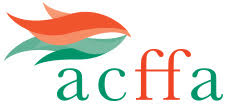New Brunswick’s salmon farmers, like the Atlantic Salmon Federation (ASF), are disheartened by the lack of returns of wild Atlantic salmon to the Magaguadavic River. Our members have a long history of working on wild salmon enhancement efforts in many parts of the region, including the Magaguadavic River.
The Atlantic Salmon Federation should be challenged for floating hypothetical assumptions as science to continually blame salmon farming for the demise of wild Atlantic salmon.
The discovery of 15 fish on the riverway trap has been discussed thoroughly by all partners in the NB Aquaculture Containment Liaison Committee, which includes the Atlantic Canada Fish Farmers Association, the Atlantic Salmon Federation, the Department of Fisheries and Oceans, the NB Department of Aquaculture, Agriculture and Fisheries, Cooke Aquaculture, Northern Harvest Sea Farms, the NB Conservation Council and the NB Salmon Council.
Our farming companies have conducted thorough investigations in addition to their routine equipment and fish monitoring programs and have found no breeches of containment on their farms to explain the recent discoveries. To help determine the origin of the fish, farmers offered to perform genetic testing on the clips taken from these salmon, which ASF have not yet supplied. Through genetic testing, farmed salmon can be traced back to the hatchery and farm where they were raised.
ASF is well aware of the industry escapee reporting requirements both federally and provincially. Our farmers are in fact going above and beyond that. In 2014, we changed our Code of Containment so that companies are now also voluntarily reporting suspected escapes from their farms. Confirmed escapes of over 100 are communicated by the federal regulator to several non-government organizations, including the ASF.
Approximately five million healthy farmed salmon swim in safe, secure farms in southwest New Brunswick in any given year. Escape events in New Brunswick are rare and are largely a result of extreme weather events. Occasionally a small number of fish may escape due to human error when fish are being handled (i.e. harvesting, fish health inspections, etc.).
The regulatory analysis performed by ASF last year was written with an anti-aquaculture agenda and the author’s lack of experience with the subject matter was obvious to anyone with knowledge of the sector. It ignored significant mechanisms that are in place to manage the industry, including ten pieces of federal and provincial legislation, the national Aquaculture Activity Regulations, conditions of license, industry codes of practice and the rigorous, independent audits by third-party internationally recognized certification programs that our companies subscribe to.
The regulations that oversee salmon farming are rigorous. They are being followed. There is more transparency in salmon farming than any other food producing sector.
It is well known and well documented that wild Atlantic salmon populations are impacted by a variety of issues. Marine Survival is considered the most significant factor, and this is being compounded by climate change. Other impacts include acid rain, industrialization, seal predation, unhealthy watersheds, hydro dams, habitat loss and over fishing. To point the finger at aquaculture based on hypothetical assumptions is ridiculous and ignores the cumulative effect and realities of warming oceans and river systems.
Next week, ACFFA and many of our members are heading to Fundy National Park to celebrate the release of a record number of wild Inner Bay of Fundy salmon from a conservation farm on Grand Manan to their native river. We’ve been working with a wide variety of partners as part of the innovative Fundy Salmon Recovery project (www.fundysalmonrecovery.com) that is seeing salmon return to the river in unprecedented numbers. If ASF truly wants to satisfy their funders by fulfilling their mandate to recover the region’s wild salmon, I suggest they focus more attention on cutting-edge, collaborative enhancement projects rather than divisive, unsubstantiated finger pointing.
Susan Farquharson
Executive Director
Atlantic Canada Fish Farmers Association
Email: s.farquharson@atlanticfishfarmers.com
Ph: 506-755-3526

